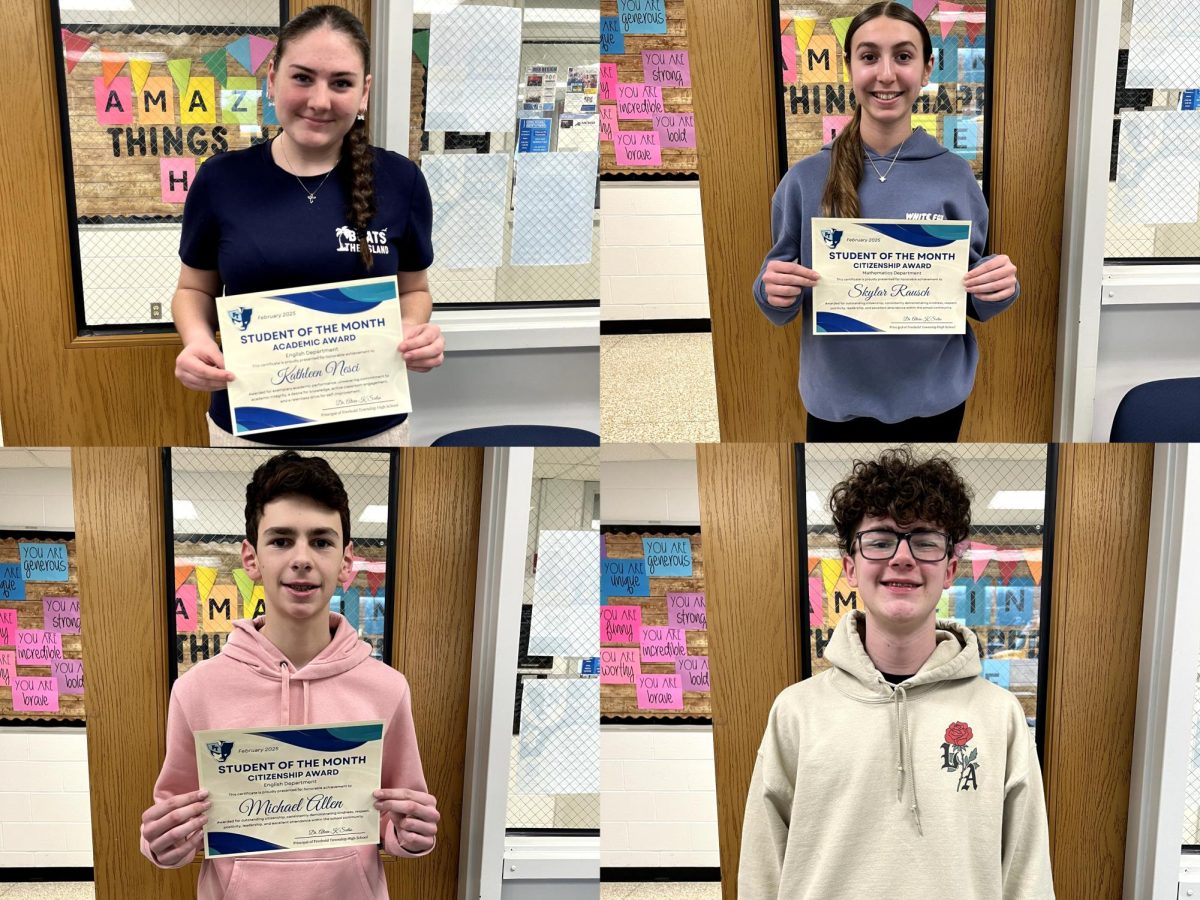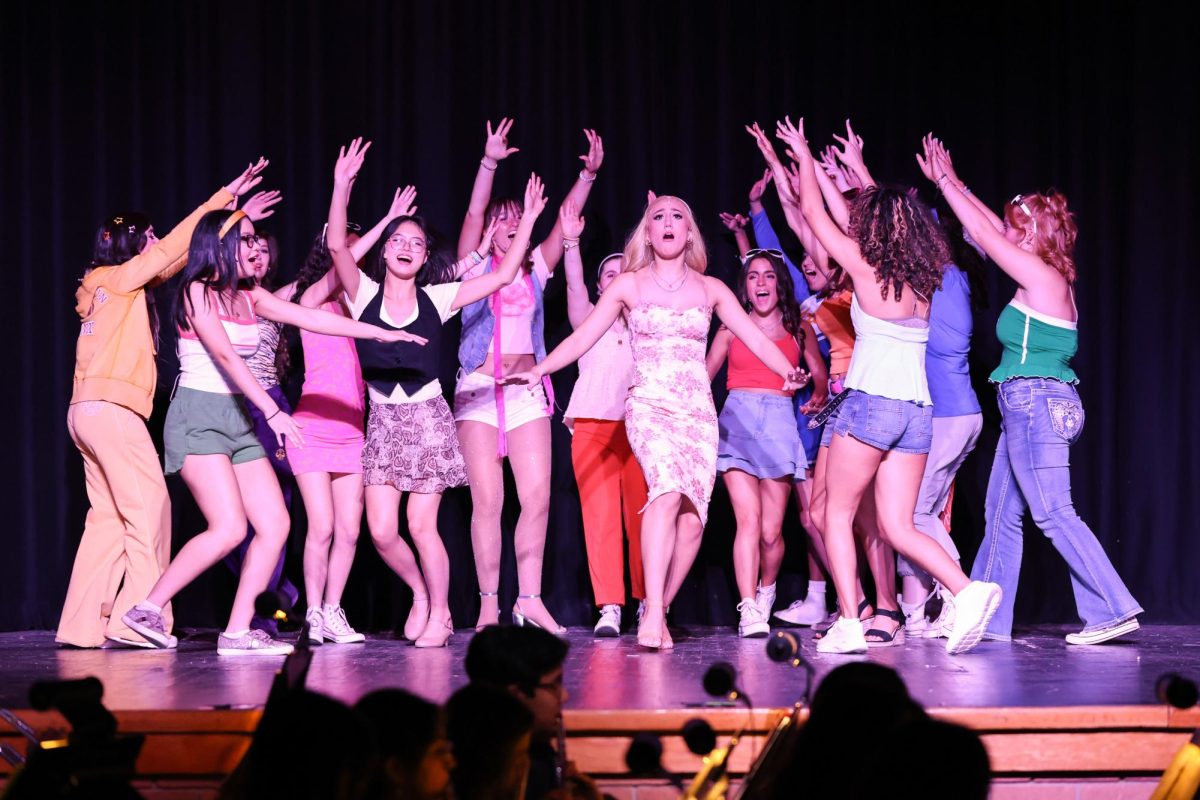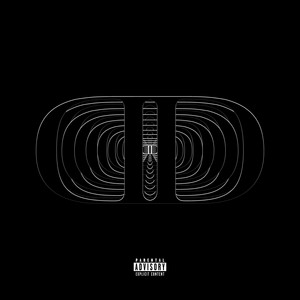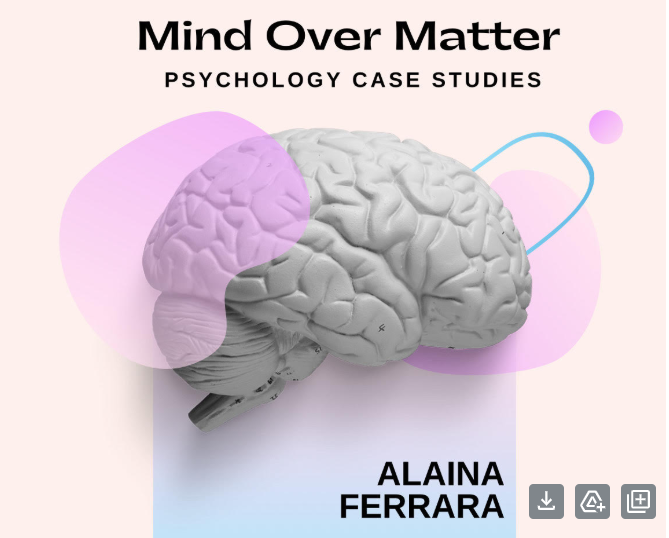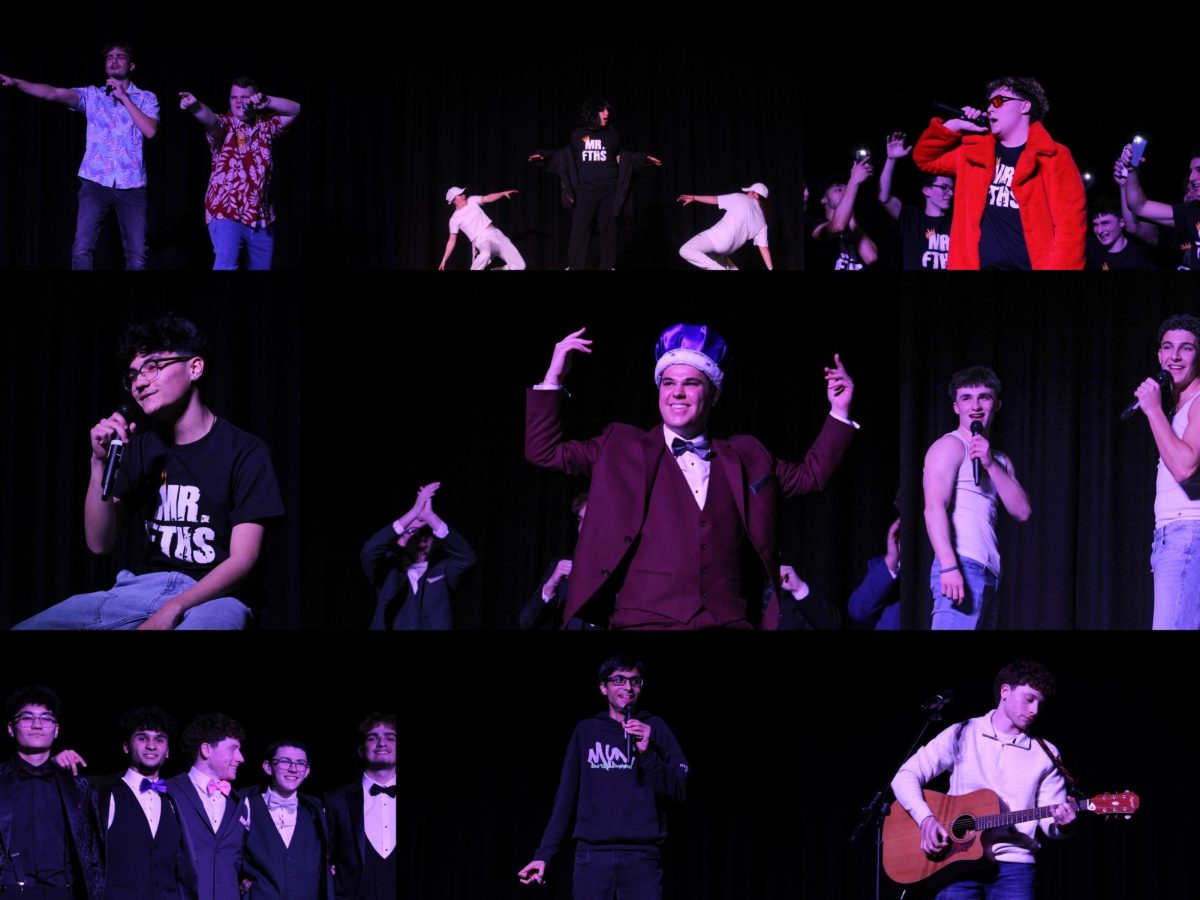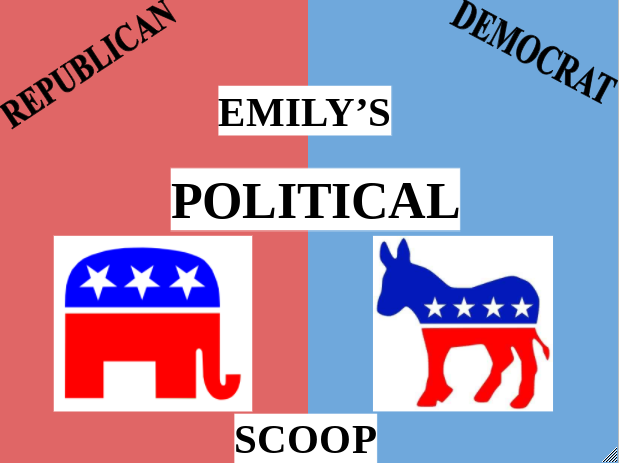Emily’s Weekly Political Scoop: COVID (Holiday Edition) and Keith Ellison
January 5, 2022
Welcome back! I hope you enjoyed your winter break and that you and your loved ones remained healthy over the holidays. A lot of us are unfortunately being impacted by the pandemic in some capacity with the spread of the new variant, Omicron. Though these times have been arduous, I hope each and every one of you is finding something to uplift your spirits, whether that be facetime calls, a hobby, a bingeable TV show, or a compelling game (I recommend Mario Kart but that’s kind of the only game I’m good at). Without further ado, let’s jump right into it!
COVID: Holiday Edition: As aforementioned, this holiday season has been overwhelmingly difficult for millions of people worldwide with the rise of Omicron, a highly transmissible variant of COVID-19, explained by NPR’s Rachel Treisman. This past Monday, data from John Hopkins University showed a reported 1,082,549 new cases in the U.S. Recently, the U.S. has surpassed its own record high numbers as lack week, John Hopkins reported more than 480,000 new cases daily which doubled the number of daily cases during the height of the delta surge. To put it in perspective, the daily average in early-November was around 70,000 cases, showing the massively obvious jump from then to now (Treisman).
As of late, the 7-day average for infections is 480,273 per day, twice the case count occurring anywhere else in the world. A factor which may have influenced the reported number on Monday could be the delay of case reports over the holiday mixed with the weekend’s conducted tests, yet public health experts have also stated the number could be an underestimate. With the mass amount of at-home tests being purchased and conducted by American citizens, Centers for Disease Control and Prevention Director Dr. Tochelle Walensky explains the difficulty of pinpointing the actual number of cases. Additionally, experts have recommended shifting the focus from solely on case numbers to hospitalizations and deaths which show the severity of the disease, both of which have risen but not at the same exponential rate (Treisman).
The number of hospitalizations in the US is, as of Tuesday, currently recorded as 122, 941 with 26% of ICU beds being used by infected patients. The only other two incidents in which hospitalization numbers have surpassed 100,000 in the country was a year ago, spiking past 1200,000, and during the delta variant hit in the summer. In terms of new deaths, John Hopkins has found 1,688 which has decreased from the pre-vaccine number of 4,442 last year (Treisman).
Though the severity of omicron seems to be less in comparison to delta, it may be due to the fact that it is infecting a large number of vaccinated people, who are less likely to experience severe sickness. Dr. Roby Bhattacharyya, an infectious disease doctor at Massachusetts General Hospital, elaborates that data suggests the variant may be as severe as previous ones in the unvaccinated and with it spreading faster, there could be a drastic increase in hospitalizations. Dr. Anthony Fauci, the nation’s top infectious disease expert, furthers that due to the increase in cases, a reliably lower rate of hospitalization can still strain overwhelmed hospitals (Treisman).
What exactly are public health officials tracking? In an NPR interview with assistant professor Natalie Dean of biostatistics at Emory University, she explains, “We’re closely tracking also … the other public health impacts, how many people are getting severely ill, how many people need to be admitted to the hospital, how many people need to go to the ICU and require mechanical ventilation.” She furthers how all of these factors intertwine, detailing that case counts are able to be observed earlier than anything else and then when hospitalizations or ICU utilizations are reported, experts are able to see trends and compare it with all types of variants to determine the impact of each one. A trend that is prominent with Omicron is that hospitalizations are increasing quickly, but there is not a drastic rise for mechanical ventilation use when comparing it to prior waves (Kelly).
The impacts of the mass spread of Omicron is twofold in many sectors of life, including traveling and academics. Detailed by Joe Hernandez of NPR, airlines canceled more than 2,400 U.S. flights by the middle of Saturday, January 1st (Happy New Year!). There were an additional 2,000 delays impacting flights and with the increase of air-traffic control staff becoming infected with COVID, more flights could be disrupted. Further, the increase of positive-COVID cases amongst cruise ship staff and passengers have hindered the promotion of cruise travel despite one’s vaccination status. Switching gears, numerous colleges and universities have transitioned to remote learning for the beginning of the new semester, such as Duke University, American University, and Michigan State University. University and college presidents have decided to make the virtual decision on the basis of the students’ and staffs’ safety, despite the preference for in-person education (Hernandez).
In sum, we have seen the negative impacts of the influx of cases to holiday, travel, school, and workplace plans, and the current estimated number of COVID cases caused by omicron, according to the CDC, is 95.4%. Speaking of CDC, they have altered the recommended quarantine time for COVID-positive individuals, shifting the number from 10 days of isolation to 5 days if symptoms are no longer present. As of now, the overall number of U.S. cases throughout the entire pandemic is 56,189,547, surpassing any other country (Treisman).
Keith Ellison: Both racism [discrimination directed against a person or a group of people on the basis of their race] and Islamophobia [prejudice against Islam or Muslims] are prevalent issues within America, rooted deep in history and maintained by the rise of hatred in the modern day. Violence against minorities and the day-to-day dangers people face on the basis of race, religion, sexual-orientation, and so on remains a prominent concern in modern society, proving the importance of maintaining inclusivity in higher-levels of government to push focus on social issues impacting marginalized communities. Further, representation is crucial to establishing a government that is truly for-the-people rather than supporting only a certain group of people. Thus, Keith Ellison’s position as Congressman not only empowered and heightened these goals but broke racial and religious barriers in both a state-wide and nation-wide manner.
Explained by the African American Registry (AAREG), Ellison was born on August 8th, 1963, his father a psychiatrist and his mother a social worker. He was raised in a Roman Catholic home in Detroit, Michigan with 4 brothers and was heavily influenced by his family’s involvement in the American Civil Rights movement (African American Registry). Explained further by the US House of Representatives: History, Art & Archives, he grandfather received death threats and cross burnings by the KKK due to his position as head of the NAACP in Louisiana, inspiring Ellison to graduate from the University of Detroit Jesuit High School and Academy in 1981.
While he was attending Wayne State University, he converted to Islam, stating, “It was Islam’s message of social justice and equality that affected me the most and satisfied my spiritual yearning and wondering about God, man, nature, and humanity” (“ELLISON, Keith | US House of Representatives: History, Art and Archives”).
In 1986, he graduated from Wayne with a bachelor’s in economics (“ELLISON, Keith | US House of Representatives: History, Art and Archives”), married Kim Elllison in 1987 after moving to Minneapolis, and went on to attend the University of Minnesota Law School where he graduated with a law degree in 1990. After law school he joined the Lindquist & Venom firm, litigating for three years before serving as Executive Director of the Legal Rights Center, a nonprofit organization in the defense of low-income clients (African American Registry).
His rise to congressional status began in 1998 and though his run for a seat in the Minnesota state House of Representatives for the Democratic-Farmer-Labor Party was unsuccessful, he was able to secure it in 2002 (“ELLISON, Keith | US House of Representatives: History, Art and Archives”). His elected House District was 58B, a blue collar Minneapolis neighborhood made up of 76% non-whites (African American Registry), and he became a known-critic of the war in Iraq and advocated for focus on progressive causes. Then unexpectedly, Democratic U.S. Representative Martin Sabo declared his retirement in the House in 2006, opening a seat that would influence Ellison and American history (“ELLISON, Keith | US House of Representatives: History, Art and Archives”).
Establishing a progressive agenda focused on universal health care, environmental justice, and the withdrawal of U.S. troops from Iraq, Ellison ran a successful campaign, earning almost 56% of the vote on Election Day “ELLISON, Keith | US House of Representatives: History, Art and Archives”). By earning this position, he became the first Muslim to be elected into Congress and the first African American representing Minnesota in the House of Representatives (African American Registry).
The National Association of Attorneys General furthers that Ellison remained in Congress from 2007 to 2019 and promoted consumer, worker, environmental, and civil and human rights protections. He was a part of the House Financial Services Committee, overseeing major financial industries, founded the Congressional Antitrust Caucus as well as the Congressional Consumer Justice Caucus, and was co-chair of the Congressional Progressive Caucus. His career, however, did not end here. In 2019, he was sworn in as Minnesota’s 30th attorney general with the purpose to help residents of the state afford their lives while maintaining dignity, safety, and respect. Further, his consensual promoted values are generosity and inclusion, evident through his avocation and political agenda (National Association of Attorneys General).
Keith Ellison for Minnesota Attorney General expanded more on his achievements as Attorney General. He successfully furthered consumer protection and created a unit within his office to fight wage theft, lower pharmaceutical drug prices, form a tax force to improve women’s economic security, and advocate for economic fairness for farmers and residents in generally non-urban areas of the state. During the time of the pandemic, he has used tools allotted to him to ensure the safety of Minnesota families and communities and to ensure economic legality and fairness. Not only that but he is a leader for criminal-justice reform and accountability, harboring the position as the lead prosecutor of the death of George Floyd in which he led the team to convict Derek Chauvin for second-degree murder (“About”).
Ellison does maintain a personal life within his undoubtedly intense political profession, having four kids with ex-wife Kim Ellison, all of which prove to be influenced by their father’s career through their own jobs: Isaiah is a Ramsey County prosecutor, Jeremiah is a Minneapolis City Council member, Elijah is an Army veteran and nursing student, and Amirah is a law student (“About”).
The overall influence of Keith Ellison’s position on the political framework and representation in American politics is nationally felt and the impact of his achievements are unquestionable. The historical barriers Ellison has broken in the political sphere are vital to further inclusivity in government and shifting primary focus to social issues faced by marginalized communities.
Works Cited
“About.” Keith Ellison for Minnesota Attorney General, www.keithellison.org/about.
African American Registry. “Keith Ellison, Politician, and Activist Born.” African American
Registry, 3 Aug. 2021, aaregistry.org/story/keith-ellison-the-politics-of-issues.
“ELLISON, Keith | US House of Representatives: History, Art and Archives.” US House of
Representatives: History, Art & Archives, history.house.gov/People/Detail/12957.
Hernandez, Joe. “U.S. COVID Cases Continue to Skyrocket and Disruptions Abound as
2022 Begins.” NPR, 1 Jan. 2022,
choice.npr.org/index.html?origin=https://www.npr.org/sections/coronavirus-live-up
ates/2022/01/01/1069647633/covid-us-travel-flights-canceled-colleges.
Kelly, Mary Lousie, et al. “These Are the Numbers Health Officials Are Watching at This Point
in the Pandemic.” NPR, 4 Jan. 2022,
choice.npr.org/index.html?origin=https://www.npr.org/2022/01/04/1070008296/covid-o
icron-cases-numbers-deaths-hospitalizations.
National Association of Attorneys General. “Keith Ellison.” National Association of Attorneys
General, 13 Nov. 2020, www.naag.org/attorney-general/keith-ellison.
Treisman, Rachel. “More than 1 Million Americans Were Diagnosed with COVID over the Long
Holiday Weekend.” NPR, 4 Jan. 2022,
choice.npr.org/index.html?origin=https://www.npr.org/2022/01/04/1070218466/1-millio
-us-covid-cases-omicron-surge.








